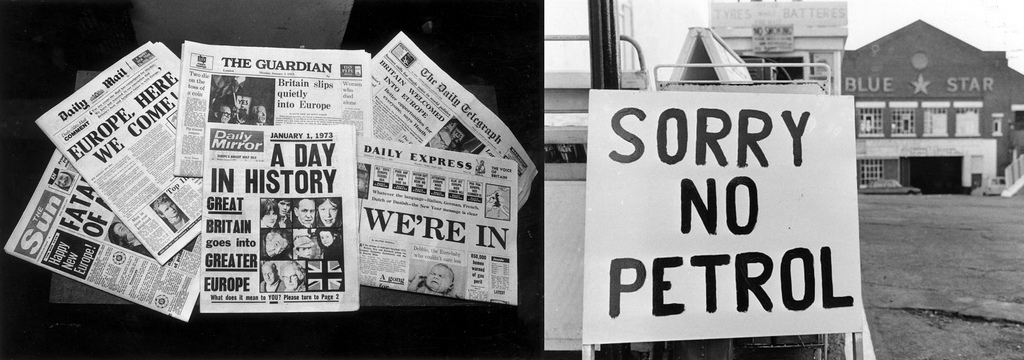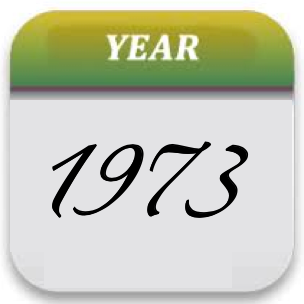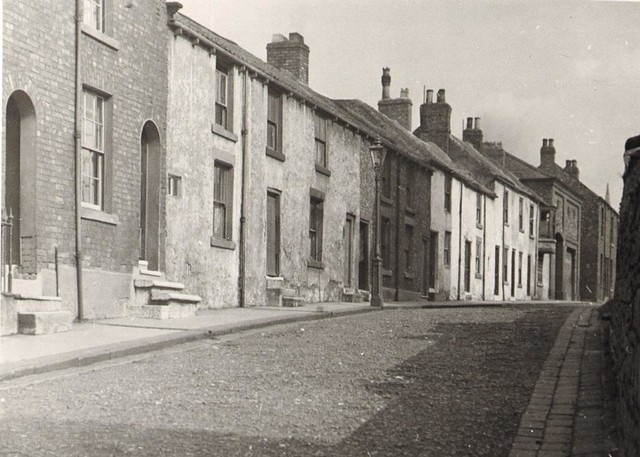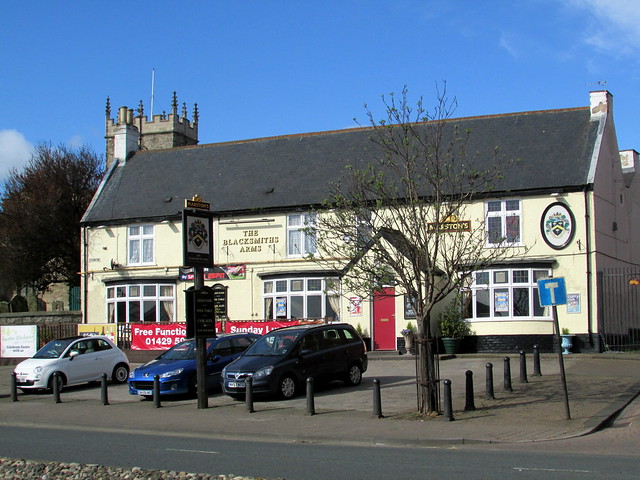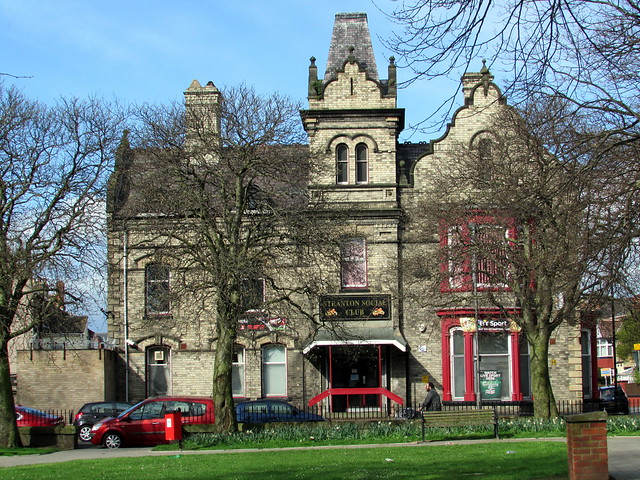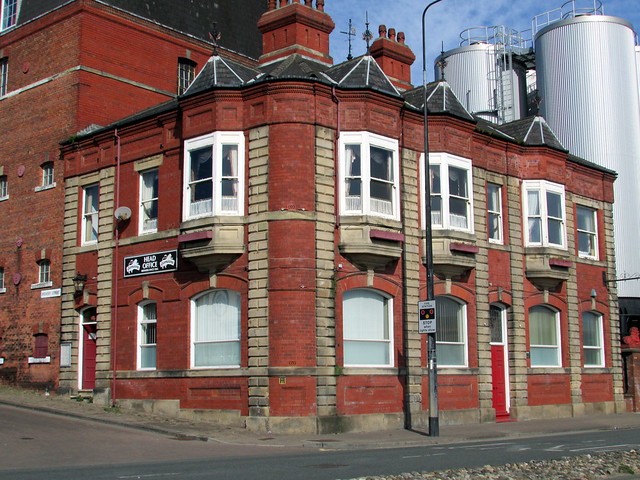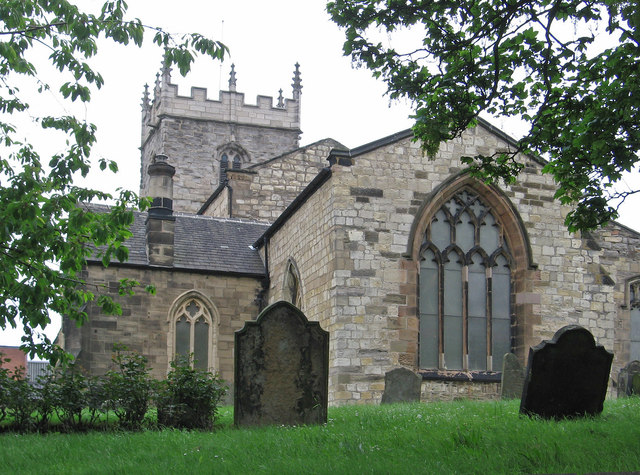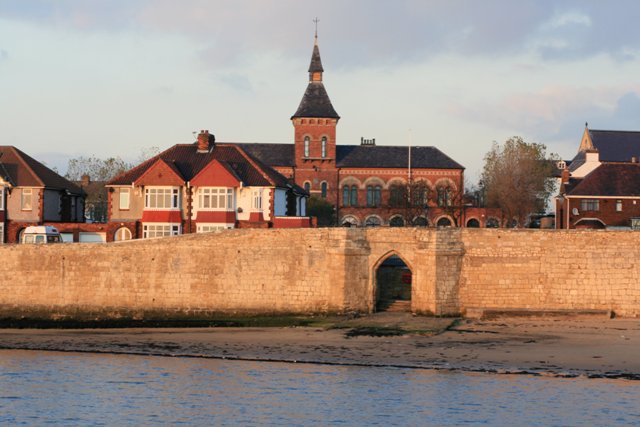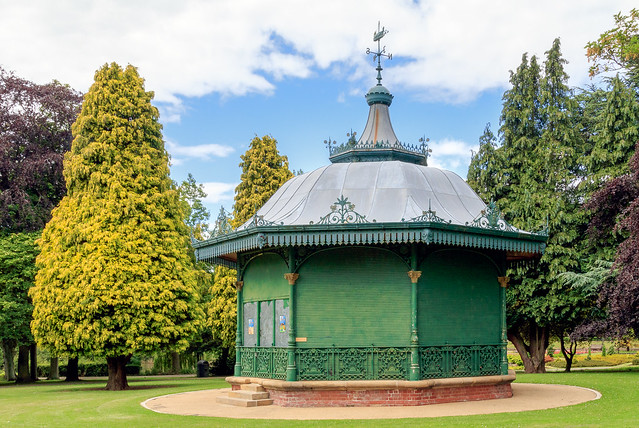memories of 1973

-
Description
1973: a year of conflict and scandal 1973 Inflation has a significant impact on peoples lives around the world with the UK inflation rate running at 8.4% and the US running at 6.16% . This causes problems in every aspect of peoples lives from the price of Gas, Food and Bills , which in turn causes higher wages and the spiral continues, much of this is caused by the Arab members of the (OPEC) restricting the flow of oil to countries supporting Israel as part of the Yom Kippur War. And the start of a Recession in Europe causing increased unemployment and a 3 day week in the UK. Meanwhile in the US two important cases dominate the news with Roe v. Wade making abortion a US constitutional right on the 22nd January and the start of the Watergate hearings in the US Senate, and due to price increase of gas the Japanese car manufacturers with smaller engines and more efficient have an impact of the US car industry. 1973 began with the UK entering the European Economic Community (what would eventually become the EU). Throughout the year, terrorist attacks hit the British mainland regularly, and by the end of the year rising inflation, industrial disquiet and an international oil crisis saw the government impose electricity rationing on the country’s businesses. Mounting crisis grips Britain as motorists hunt for ever-dwindling petrol supplies. 'No Petrol' signs greeted frustrated motorists in 1973. The year saw the births of such stars as Kate Beckinsale, Ryan Giggs and Paula Radcliffe, on the downside, it also saw the birth of Crispian Mills, an event that would eventually lead over two decades later to the tragic formation of Kula Shaker. Musically, 1973 was the year that David Bowie killed off Ziggy Stardust, The Who released Quadrophenia and Pink Floyd released Dark Side of The Moon, and Lou Reed got bitten by fan at a gig. In the singles chart, however, it was the year of Slade. From Cum On Feel The Noize topping the charts for most of March, to Merry Xmas Everybody’s five-week run in the top spot at Christmas, the cheerful West Midlands pub rockers were at their peak – Skweeze Me Pleeze Me also went to number one for them that year. https://www.youtube.com/watch?v=yEmGQYCuc6M" >www.youtube.com/watch?v=yEmGQYCuc6M In the meantime, the public also found time to give the instrumental track Eye Level, by the Simon Park Orchestra, a whole month of chart domination, off the back of its use as the theme tune to the Dutch detective show Van Der Valk. On the television, several classic, gently undemanding sitcoms made their debut, such as Last Of The Summer Wine, Some Mothers Do ‘Ave ‘Em and Are You Being Served? Elsewhere, Jon Pertwee fought The Master and the Daleks in Doctor Who, Jacob Bronowski educated the nation with his classic documentary The Ascent of Man, and we finally found out what had happened to the Likely Lads. In cinemas, meanwhile, distrust and paranoia were the order of the day, with The Day of the Jackal, Don’t Look Now, Soylent Green, Serpico and The Wicker Man all mining different veins of nervy tension. Meanwhile, The Exorcist scared a whole generation and changed Mark Kermode’s life forever, some bloke called George Lucas directed American Graffiti and another bloke called Martin Scorsese directed Mean Streets, and Roger Moore’s eyebrow took over the role of James Bond in Live and Let Die. It was the year of Watergate, the Arab oil embargo and the three-day week. A pound in 1973 is worth the equivalent of just nine pence today. Decades of inflation have meant the price of a pint of lager is now 20 times what it was 40 years ago. It may be hard to believe at a time when a pint costs around £2.87, but in 1973 you would only have to shell out 14 pence for one. On January 1 1973 Britain entered what many regarded as a bright new era of her history as a member of the Common Market - even if the Union flag was flying upside down outside the EEC offices in Brussels. By December the country was coming to a near standstill, plunged into darkness by industrial strife, economic mismanagement and cuts in Arab oil supplies in the wake of the Yom Kippur War. Food prices spiralled and the European butter mountain was sold to Russia at less than a third of the price in the shops. Pensioners were given butter vouchers. Marlon Brando and Maria Schneider discovered an alternative use for it in Last Tango in Paris. There were still fish in the sea in 1973, and a British trawler fleet to catch them - until Iceland declared exclusive rights in her corner of the Atlantic and started the Cod War. A real shooting war broke out in October when Egypt and her Arab allies attempted to regain the losses of 1967, provoking the most dangerous superpower confrontation since Cuba. Another war drew to a close as the Americans disengaged from Vietnam. Engulfed in scandal, Richard Nixon would hobble on into the following year before bowing to the inevitable. Violence in Northern Ireland spread to the mainland with bomb attacks in central London. Juntas came to power in Chile and Greece, and Princess Anne was at her most glamorous as she married Captain Mark Phillips. Red Rum won his first Grand National, and Sunderland beat Leeds in the FA Cup. A fire at the Summerland holiday complex in the Isle of Man killed 51 people. Noel Coward and J R R Tolkien departed the earth, and Uri Geller made his spoon-bending television debut. Interest rates may have been 17 per cent but a three-bedroom semi cost around £10,000. Miners earned £36.79 a week and nurses £18. A pint of beer cost 13p and a loaf of bread 11p. 1973 Events 1 January – The United Kingdom, the Republic of Ireland and Denmark entered the European Economic Community. 4 January – 400 children attacked British Army troops in Derry, Northern Ireland. 9 January – Mick Jagger's request for a Japanese visa is rejected on account of a 1969 drug conviction, putting an end to The Rolling Stones' plans to perform in Japan during their forthcoming tour. 11 January – The Open University awarded its first degrees. 18 January – The Rolling Stones' benefit concert for Nicaraguan earthquake victims raises over $350,000. 19 January – The super tug Statesman was sent to protect British fishing vessels from Icelandic ships in the Cod War. 22 January – British share values fell by £4 billion in one day. 25 January – English actor Derren Nesbitt was convicted of assaulting his wife Anne Aubrey. 14 February – David Bowie collapses from exhaustion after a performance at New York's Madison Square Garden. 20 February – Two Pakistanis were shot dead by police in London after being spotted carrying pistols, which are later established to have been fake pistols. 27 February – Rail workers and civil servants went on strike. 1 March – Pink Floyd released The Dark Side Of The Moon. Which goes on to become one of the best-selling albums of all time. 3 March – Two IRA bombs exploded in London, killing one person and injuring 250 others. Ten people were arrested hours later at Heathrow Airport on suspicion of being involved in the bombings. 8 March - Northern Ireland sovereignty referendum (the "Border Poll"): 98.9% of those voting in the province wanted Northern Ireland to remain within the UK. Turnout was 58.7%, although less than 1% for Catholics. This was the first referendum on regional government in the U.K. IRA bombs exploded in Whitehall and the Old Bailey in London. 8 March – Paul McCartney is fined $240 after pleading guilty to charges of growing marijuana outside his Scottish farm. 10 March – The governor of Bermuda Richard Sharples and his aide-de-camp were assassinated. 14 March - The singers Stephen Stills and Véronique Sanson are married near Guildford, England. 17 March – Elizabeth II opened the new London Bridge. 21 March – Lofthouse Colliery disaster: seven men were killed in an inrush of water to the West Yorkshire coal mine. 26 March – Women were admitted into the London Stock Exchange for the first time. April – Price and Pay Code Stage Two restricted rises in pay and prices. 1 April – VAT came into effect in the UK. Phase 2 of the counter-inflation policy comes into effect. 6 April – Mr Peter Niesewand, a correspondent of the Guardian newspaper and the BBC, was jailed in Rhodesia for an alleged breach of the Official Secrets Act. 7 April – Cliff Richard takes part in the 18th Eurovision Song Contest. He finishes in 3rd place with the song "Power to All Our Friends". 17 April – British Leyland launched its new Austin Allegro range of small family saloons, to replace the ageing 1100 and 1300 ranges that were sold under the Austin, Morris, Riley, Wolseley, MG and Vanden Plas brands from the range's 1962 launch. 28 April – Liverpool and Celtic were crowned league champions of England and Scotland respectively. 1 May – 1.6 million workers went on strike over government pay restraints. 4 May - 29 July – Led Zeppelin embarks on a tour of the United States, during which they set the record for highest attendance for a concert, 56,800, at the Tampa Stadium in Tampa, Florida. The record was previously held by The Beatles. Performances for the movie The Song Remains the Same are also filmed. 5 May – 28 July – A BBC Television series The Ascent of Man, written and presented by Jacob Bronowski, aired - there was also an accompanying best selling book. 5 May – Sunderland achieved a shock 1-0 win over Leeds United in the FA Cup final at Wembley. Ian Porterfield scores the only goal of the game. It was the first time that an FA Cup winning team had not contained a single player to be capped at full international level, and the first postwar FA Cup won by a side outside the First Division. 10 May – The Liberal Party gained control of Liverpool council in the local council elections. 12 May - David Bowie is the first rock artist to perform at Earls Court Exhibition Centre. 15 May – In the House of Commons, Edward Heath, the prime minister, described large payments made by Lonrho to Duncan Sandys through the tax haven of the Cayman Islands at a time when the government is trying to implement a counter-inflation policy as the "unacceptable face of capitalism"' 20 May – The Royal Navy sent three frigates to protect British fishing vessels from Icelandic ships in the Cod War dispute. 25 May – Mike Oldfield's Tubular Bells becomes the first release on Richard Branson's newly launched Virgin label. 29 May – The Princess Royal announced her engagement to Mark Phillips. 4 June - Ronnie Lane plays his last show with Faces at the Edmonton Sundown in London. Lane had informed the band three weeks earlier that he was quitting. 23 June – A fire at a house in Hull which killed a 6-year-old boy is initially thought to be an accident but it later emerged as the first of 26 fire deaths caused over the next seven years by arsonist Peter Dinsdale. 30 June - Ian Gillan quits Deep Purple. 1 July – The British Library was established. 3 July – David Bowie 'retires' his stage persona Ziggy Stardust in front of a shocked audience at the Hammersmith Odeon at the end of his British tour. 4 July – Slade drummer Don Powell is critically injured in a car crash in Wolverhampton; his 20-year-old girlfriend is killed. 6 July – The James Bond film Live and Let Die was released in British cinemas, with the spy being played by 45-year-old The Saint star Roger Moore. 10 July – The Bahamas gained full independence within the Commonwealth of Nations. 13 July - Queen releases their debut album. 15 July - Ray Davies of The Kinks makes an emotional outburst during a performance at White City Stadium, announcing he is quitting the group. He later withdraws the statement. 30 July – £20 million compensation was paid to victims of Thalidomide following an 11-year court case. 31 July - Militant protesters of Ian Paisley disrupted the first sitting of the Northern Ireland Assembly. Markham Colliery disaster: eighteen coal miners were killed at the coal mine near Staveley, Derbyshire, when the brake mechanism on their cage fails. 8 August – Gordon Banks, the Stoke City and England goalkeeper, announced his retirement from football having lost the sight in one eye in a car crash in October last year. 20 August – Football League president Len Shipman called for the government to bring back the birch as a tactic of dealing with the growing problem of football hooliganism. The London Symphony Orchestra becomes the first British orchestra to take part in the Salzburg Festival. 21 August – The coroner in the Bloody Sunday inquest accused the British army of "sheer unadulterated murder" after the jury returns an open verdict. 8 September – The IRA detonated bombs in Manchester and Victoria Station in London. 10 September - IRA bombs at King's Cross and Euston railway stations in London injured 13 people. The fashion store Biba re-opened in Kensington High Street. 12 September – Further IRA bombs exploded in Oxford Street and Sloane Square. 28 September – Somerset Coalfield last worked (at Lower Writhlington near Radstock). 8 October - London Broadcasting Company, Britain's first legal commercial Independent Local Radio station, begins broadcasting. Prime minister Edward Heath announced government proposals for its counter-inflationary Price and Pay Code Stage Three (continuing to July 1974), including limiting pay rises to 7%, restricting price rises, and paying £10 bonuses to pensioners before Christmas - a move which would cost around £80 million, funded by a 9p rise in National Insurance contributions. 16 October – The film Don't Look Now, containing one of the most graphic sex scenes hitherto shown in mainstream British cinema, is released in a double bill with The Wicker Man. 20 October – The Dalai Lama made his first visit to the UK. Queen Elizabeth II opens Sydney Opera House. 26 October – Firefighters in Glasgow staged a one-day strike following a pay dispute. Troops were drafted in to run the fire stations. 8 November - The Second Cod War between Britain and Iceland ended. The government made £146 million compensation available to three nationalised industries to cover losses resulting from the price restraint policies. 12 November - Miners began overtime ban; ambulance drivers began selective strikes. Television sitcom Last of the Summer Wine began its first series run on BBC One, following a premiere in Comedy Playhouse on 4 January. It would run for 31 series. 14 November - Eight members of the Provisional IRA were convicted of the March bombings in London. The Princess Royal married Captain Mark Phillips at Westminster Abbey. November - Karl Jenkins is among the participants in a live-in-the-studio performance of Mike Oldfield's Tubular Bells for the BBC. 20 November - The Who open their Quadrophenia US tour with a concert at San Francisco's Cow Palace, but drummer Keith Moon passes out and has to be carried off the stage. 19-year old fan Scot Halpin is selected from the audience to finish the show; Halpin would later be awarded Rolling Stone magazine's "Pick-Up Player of the Year Award" for his historic performance. 26 November – Peter Walker, the Secretary for Trade and Industry, warned that petrol rationing may have to be introduced in the near future as a result of the oil crisis in the Middle East which was restricting petrol supply. 5 December – The speed limit on motorways was reduced to 50 mph from 70 mph until further notice. 9 December – The Sunningdale Agreement was signed in Sunningdale, Berkshire by Prime Minister Edward Heath, Irish premier Liam Cosgrave, and representatives of the Ulster Unionist Party, the Social Democratic and Labour Party and the Alliance Party of Northern Ireland. 10 December - Brian Josephson shared the Nobel Prize in Physics "for his theoretical predictions of the properties of a supercurrent through a tunnel barrier, in particular those phenomena which are generally known as the Josephson effects". Geoffrey Wilkinson won the Nobel Prize in Chemistry jointly with Ernst Otto Fischer "for their pioneering work, performed independently, on the chemistry of the organometallic, so called sandwich compounds". 31 December - As a result of coal shortages caused by industrial action, the electricity consumption reduction measure - the Three-Day Week, announced on 17 December - came into force at midnight. Inflation has risen to 8.4%. Start of Secondary banking crisis of 1973-1975. Vindolanda tablets discovered by Robin Birley near Hadrian's Wall. Pizza Hut opens its first UK restaurant in Islington. The National House Building Council is formed. Completion of Cromwell Tower, the first tower block on the Barbican Estate in the City of London and at this date London's tallest residential tower at 42 storeys and 123 metres (404 ft) high. Death of last pure-bred Norfolk Horn ram. Top Records Singles 6 January - "Long Haired Lover from Liverpool" - Little Jimmy Osmond. 27 January - "Block Buster!" - Sweet. 3 March - "Cum On Feel the Noize" - Slade. 31 March - "The Twelfth of Never" - Donny Osmond. 7 April - "Get Down" - Gilbert O'Sullivan. 21 April - "Tie a Yellow Ribbon Round the Ole Oak Tree" - Dawn. 19 May - "See My Baby Jive" - Wizzard. 16 June - "Can the Can" - Suzi Quatro. 23 June - "Rubber Bullets" - 10cc. 30 June - "Skweeze Me Pleeze Me" - Slade. 21 July - "Welcome Home" - Peters and Lee. 28 July - "I'm the Leader of the Gang (I Am)" - Gary Glitter. 25 August - "Young Love / "A Million to One" - Donny Osmond. 22 September - "Angel Fingers" - Wizzard. 29 September - "Eye Level" - Simon Park Orchestra. 27 October - "Daydreamer / The Puppy Song" - David Cassidy. 17 November - "I Love You Love Me Love" - Gary Glitter. 15 December - "Merry Xmas Everybody" - Slade. Albums 6 January - 20 All Time Hits of the 50s - Various Artists (1 week) 13 January - Slayed? - Slade (1 week) 20 January - Back to Front - Gilbert O'Sullivan (1 week) 27 January - Slayed? - Slade (2 weeks) 10 February - Don't Shoot Me I'm Only the Piano Player - Elton John (6 weeks) 24 March - Billion Dollar Babies - Alice Cooper (1 week) 31 March - 20 Flashback Greats of the Sixties - Various Artists (2 weeks) 14 April - Houses of the Holy - Led Zeppelin (2 weeks) 28 April - Ooh-La-La - The Faces (1 week) 5 May - Aladdin Sane - David Bowie (5 weeks) 9 June - Pure Gold - Various Artists (3 weeks) 30 June - That'll Be the Day - Soundtrack (7 weeks) 18 August - We Can Make It - Peters and Lee (2 weeks) 1 September - Sing It Again Rod - Rod Stewart (3 weeks) 22 September - Goat's Head Soup - The Rolling Stones (2 weeks) 6 October - Sladest - Slade (3 weeks) 27 October - Hello! - Status Quo (1 week) 3 November - Pin Ups - David Bowie (5 weeks) 8 December - Stranded - Roxy Music (1 week) 15 December - Dreams Are Nuthin' More Than Wishes - David Cassidy (1 week) 22 December - Goodbye Yellow Brick Road - Elton John (2 weeks) 1973 on television 4 January – The UK and world record breaking long-running comedy series Last of the Summer Wine starts as a 30-minute pilot on BBC1's Comedy Playhouse show. The first series run starts on 12 November and the programme runs for 37 years until August 2010. 11 January – The Open University awards its first degrees. 25 January – English actor Derren Nesbitt is convicted of assaulting his wife Anne Aubrey. 15 February – The first episode of Some Mothers Do 'Ave 'Em airs on BBC1. 14 March – Are You Being Served? begins first regular series (pilot aired 8 September 1972). 25 March – The pilot episode of Open All Hours airs as part of Ronnie Barker's series Seven of One on BBC1. March – Experimental Ceefax teletext transmissions begin. 1 April – Prisoner and Escort, the pilot episode of Porridge, airs as part of Seven of One. 5 May–28 July – BBC Television series The Ascent of Man, written and presented by Jacob Bronowski, airs; there is also an accompanying bestselling book. 6 August – James Beck, who stars as Private Joe Walker in the popular BBC sitcom Dad's Army, dies of a burst pancreas at the age of 44. Although the series continues until 1977, the part of Walker is not recast and the show carries on without him. 8 October – Pat Phoenix leaves the role of Elsie Tanner on Coronation Street after thirteen years. 31 October – Thames Television's landmark 26 part documentary The World at War begins. 12 November – First series run of Last of the Summer Wine starts on BBC1. 23 November – 10th anniversary of the first episode of Doctor Who. Smash Martians advertising campaign launches on ITV. BBC 1 9 January – Whatever Happened to the Likely Lads? (1973–1974) 5 February – The Wombles (1973–1975, 1990–1991 BBC, 1996–1997 ITV) 15 February – Some Mothers Do 'Ave 'Em (1973–1978) 26 May – That's Life! (1973–1994) 13 June – We Are the Champions (1973–1995) 20 August – Why Don't You? (1973–1995) 12 November – Last of the Summer Wine (1973–2010) ITV 1 January – Pipkins (1973–1981) 30 April – The Tomorrow People (1973–1979, 1992–1995) 15 August – Man About the House (1973–1976) 29 September – New Faces (1973–1978, 1986–1988) 31 October – The World at War (1973–1974) 1 November – Beryl's Lot (1973–1977) -
Owner
brizzle born and bred -
Source
Flickr (Flickr) -
License
What does this mean? Attribution-ShareAlike License
-
Further information
Link: https://www.flickr.com/photos/20654194@N07/38237607031/
Resource type: Image
Added by: Simon Cotterill
Last modified: 8 years, 2 months ago
Viewed: 1010 times
Picture Taken: 2017-11-07T09:54:16 -
Co-Curate tags
